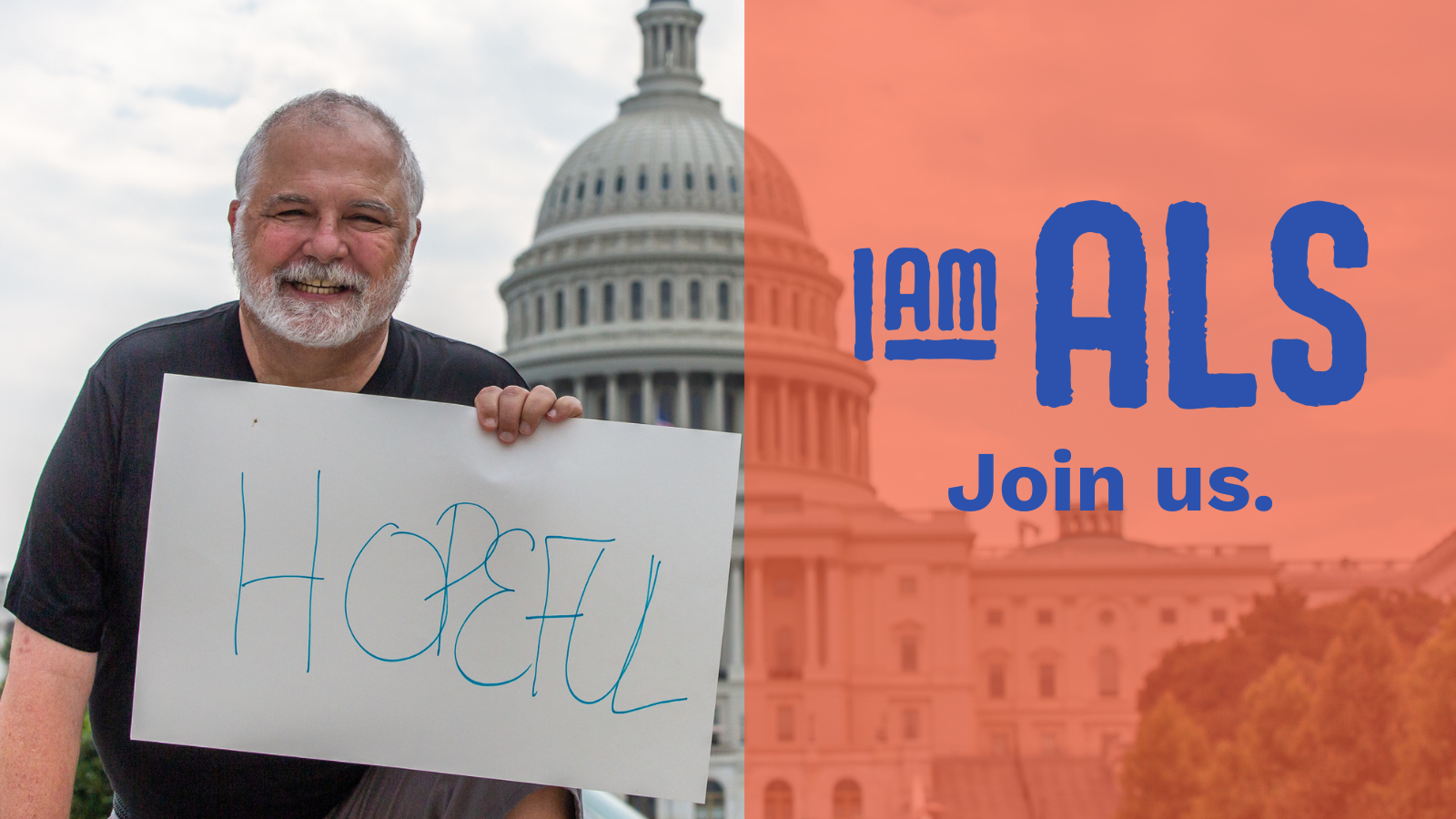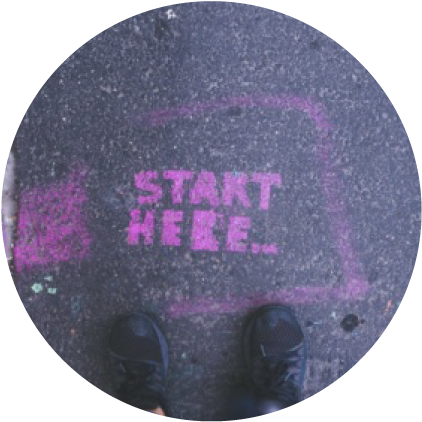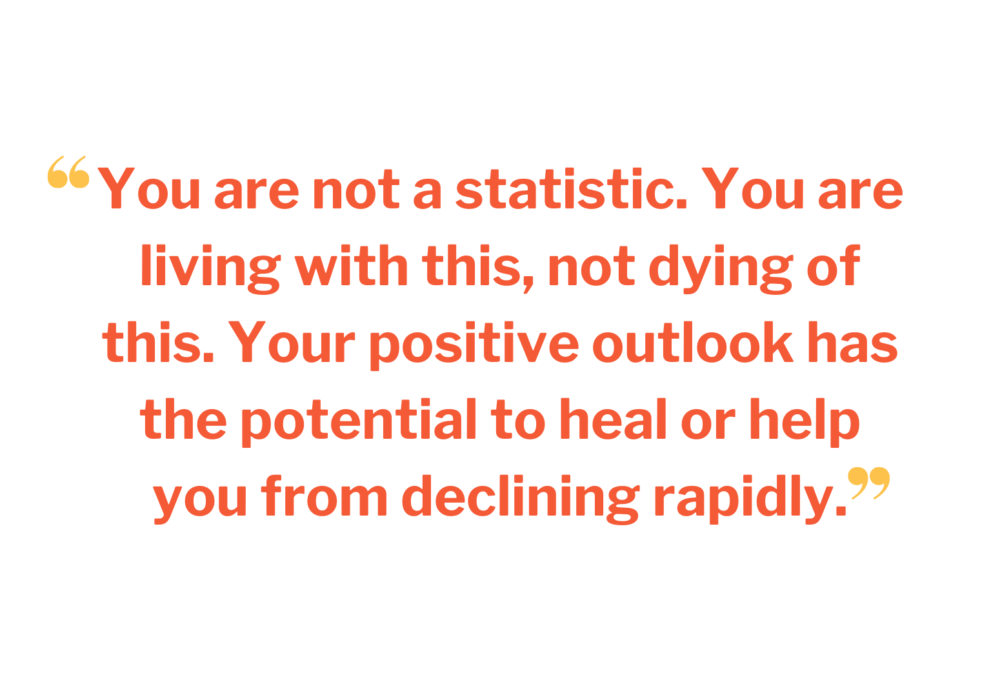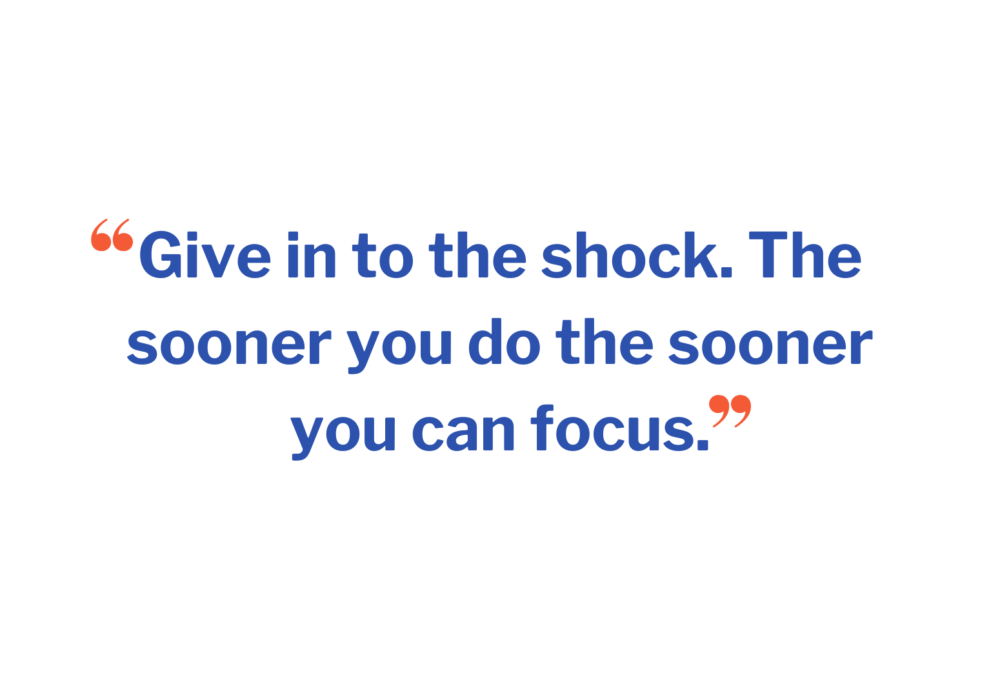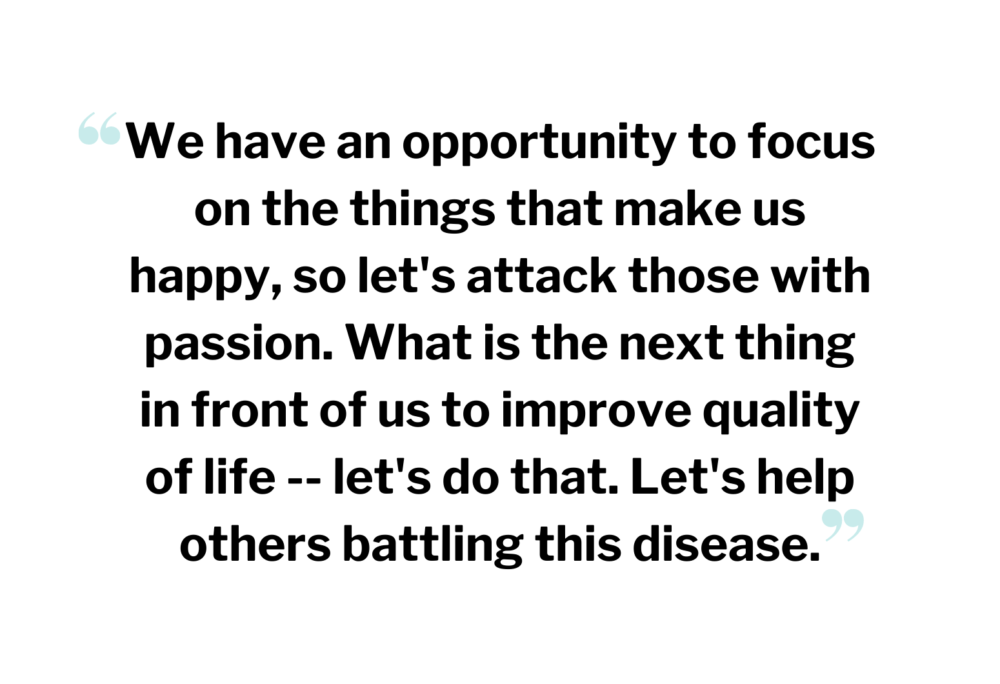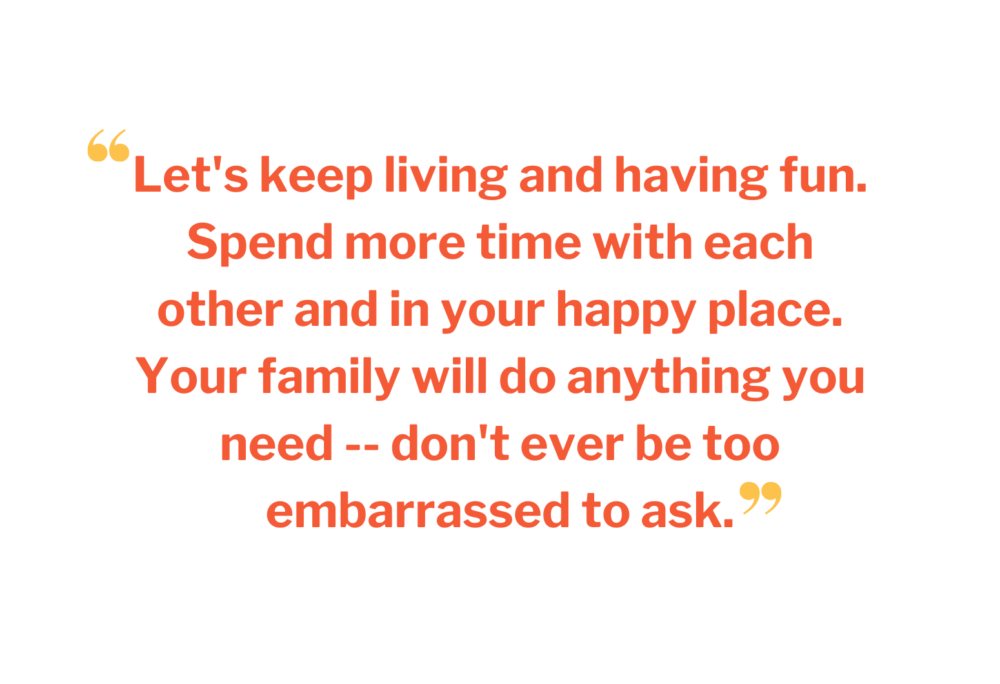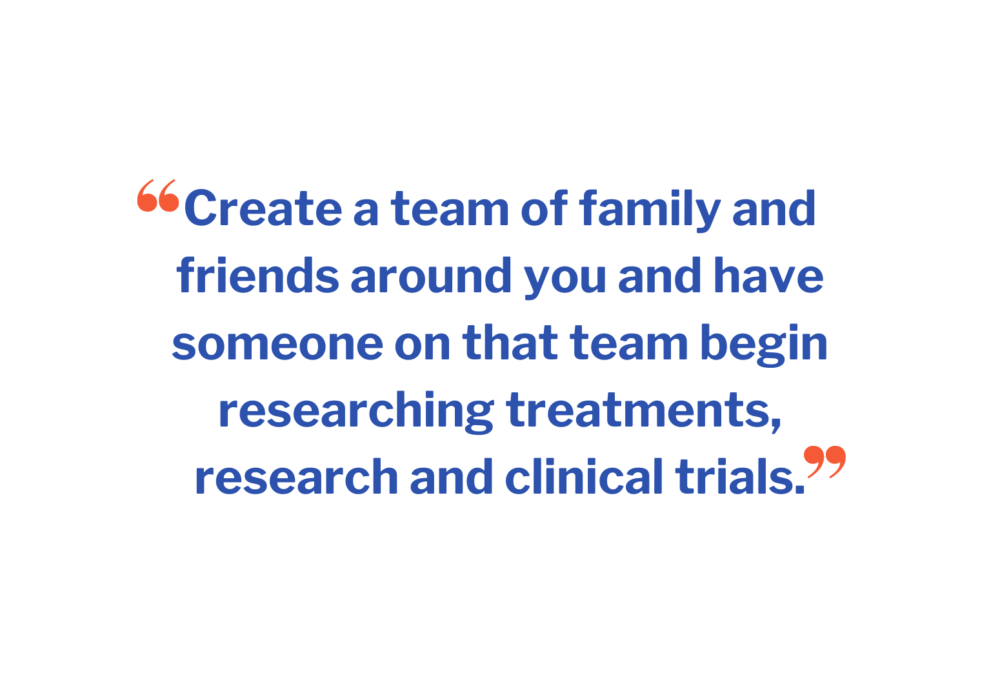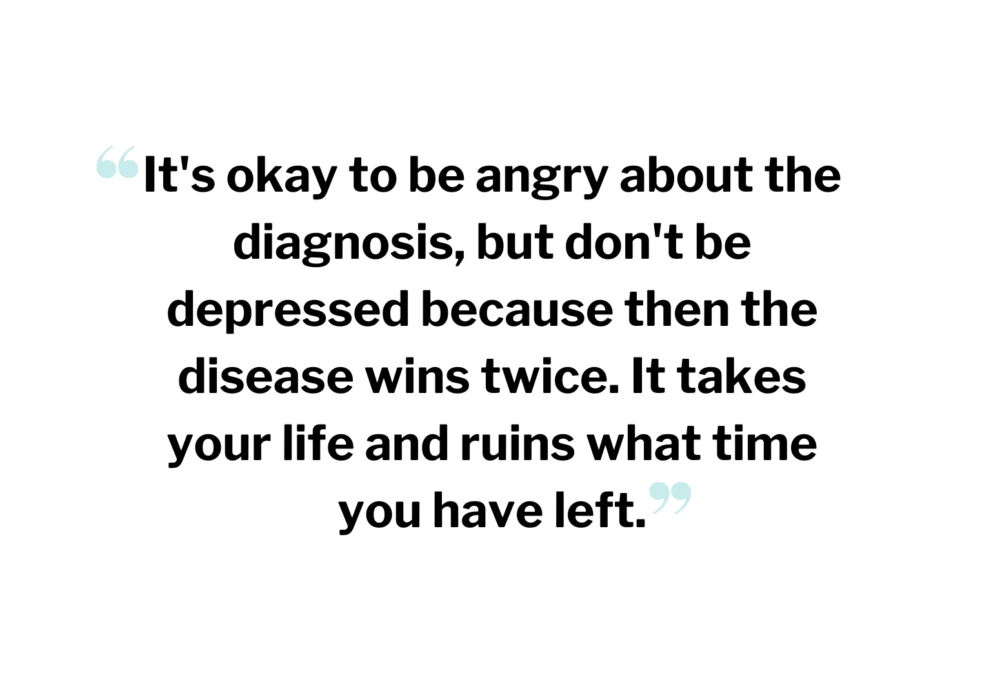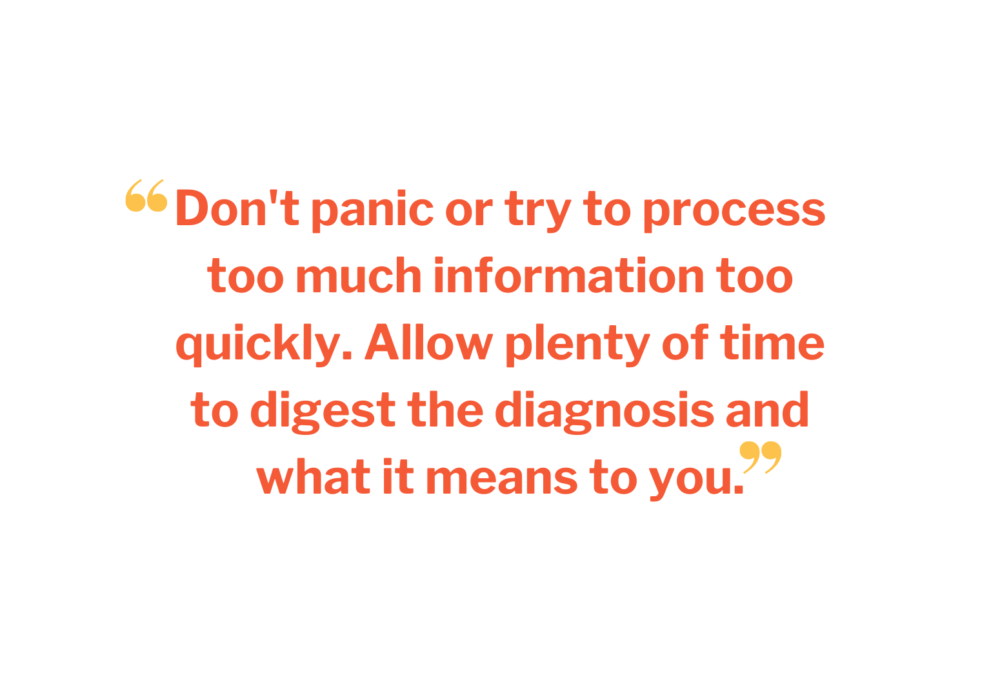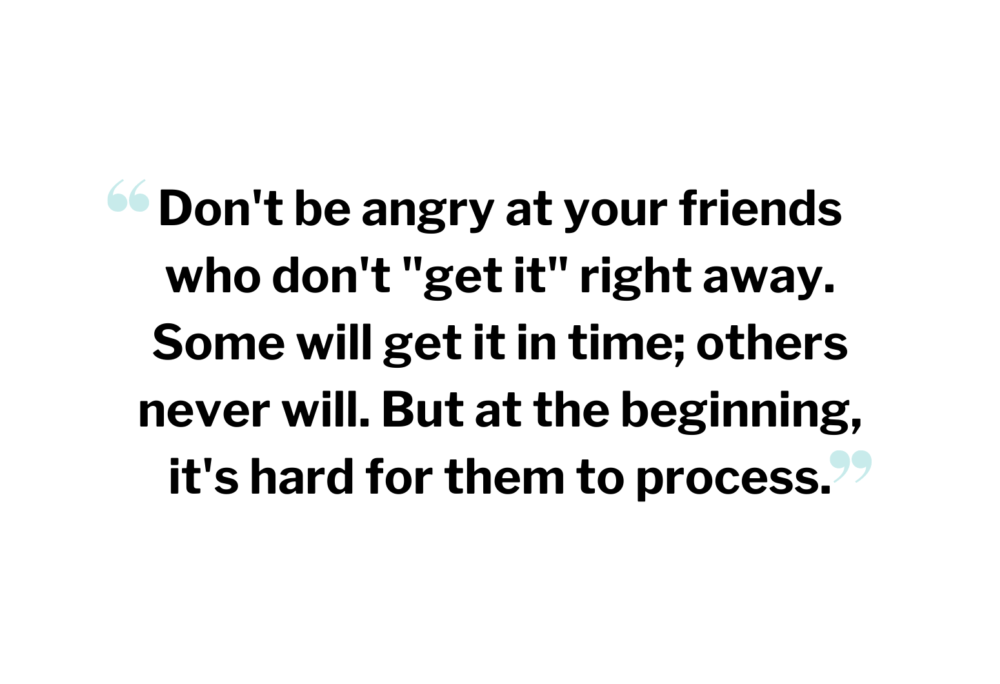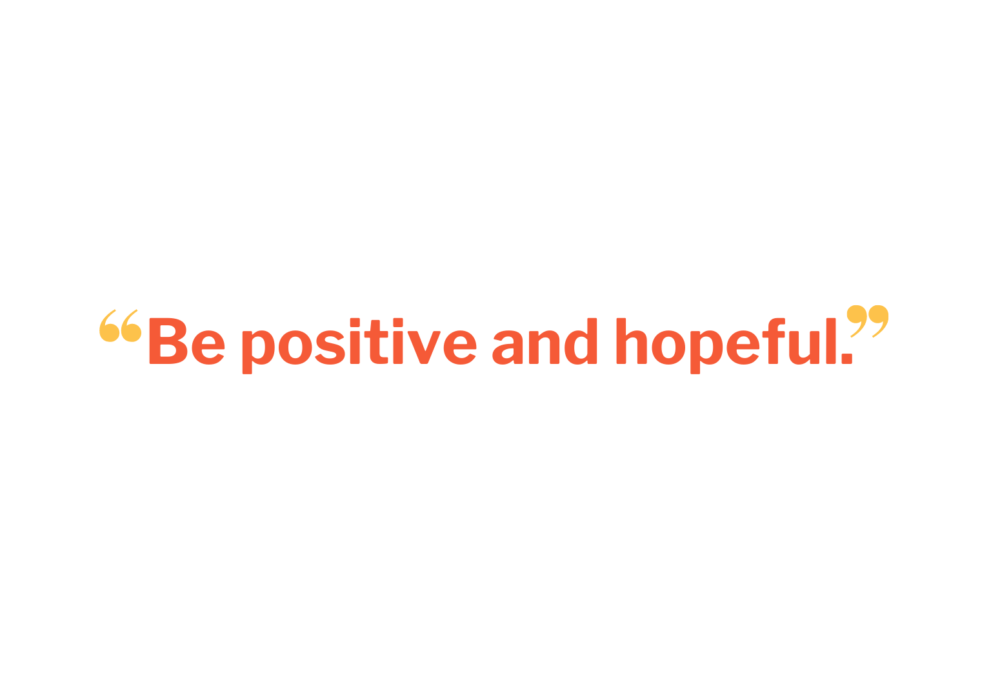Scared. Angry. Anxious. Lost. These are just a few of the emotions you might be experiencing when someone you love is diagnosed with ALS. Whether you’re angry at the universe or heartbroken life is not going as planned, know that it’s OK to feel this way. As a caregiver, you’ll experience many different emotions along this journey. Some days will be harder than others. Remember, in those overwhelming moments, sometimes the best thing to do is slow down and remember to breathe.
So what does it mean to be a caregiver for a person with ALS? With so much to learn plus the shock of diagnosis, it can feel like you’re lost in a foreign country without a map. Here you’ll find practical information to help you find your way.
6 things to do first
-
- Breathe. It may feel like your world’s axis has just shifted. Take a deep breath and then a few more. This is key to calming your mind so you can observe and process how you’re feeling, and start preparing to act.
<liTalk to your loved one with ALS. Neither of you ever thought you’d be at this point. Don’t isolate yourself and your thoughts from each other, but share openly — your hopes and your fears. Figure out what your and your loved one’s values are, and talk about what your loved one wants your role to be. Do they want you to take the lead on learning more about ALS, doing research on treatments and clinical trials or making appointments? Use this checklist to help your loved one identify and communicate their values.
- Get educated. It’s important to rely on trusted resources when learning about ALS, so don’t believe everything you read. You may already know that there are currently no cures for ALS. However, there are numerous clinical trials. Start learning about clinical trials now and use a trial finder to identify which ones you want to ask your loved one’s doctor about. Additionally, learning about the role of genetics in ALS can help you decide whether further testing should be explored.
- Start Preparing. Understanding and applying for disability benefits (or VA benefits, if applicable) is essential when preparing for your loved one’s future care needs. The application process can take a few months, so the sooner you apply the better. Speaking with a financial planner and/or seeking legal advice about advanced directives also helps ensure you’re able to meet your loved one’s needs and honor their wishes. These discussions are not easy, but making a plan early on will allow you to respond more effectively when the time comes. Check out these 9 Tips for Financial Planning & ALS from The ALS Association.
- Build your team. It could be one person, or it could be ten. Shortly after diagnosis there is a period of disbelief where you may not want to talk with others because you’re not ready to accept what’s happening. Once you begin to accept it and ask your family, friends and coworkers for help, you’ll find that everyone wants to help — they just don’t know how to. So ask someone to start learning about the top ALS doctors. Ask another to start learning about treatments and clinical trials. Ask and another to create a care coordination account like Rallyhood or CaringBridge. Use Caregiving.com’s Care Binder to get organized, save time and reduce stress. Remember: Asking for help is a superpower, not a weakness. You don’t have to go through this experience alone.
- Make time for yourself. There is, and will continue to be, a lot going on. It is vital (and no, we’re not exaggerating) to make time for yourself, even if it’s just 30 mins. Use this worksheet to create your self-care plan.
Understanding types of care
For many, being a caregiver to a person with ALS means providing day-to-day support so a loved one can continue to live at home and in their community. In general, caregiving responsibilities can be divided into two categories: personal care and medical management. Personal care involves providing support with bathing, dressing, toileting, transitioning, meal time assistance and transportation. Medical management includes tasks such as medication administration, symptom management, appointment scheduling and provider communications. Your loved one’s abilities will change over time, so the care you provide will also change depending on the type of support your loved one needs. As you navigate this process, remember although ALS may lessen your loved one’s ability to be physically independent, you can help ensure it does not take away their dignity. Talk to them about their values, and redefine what it means to be independent.
Communicating with health care providers
A key part of being a caregiver to a person with ALS is communicating with health care providers. Your loved one will likely have a number of different providers throughout their care experience. In addition to a physician, it is likely you’ll also encounter nurses, registered dieticians, respiratory therapists, occupational therapists, physical therapists, social workers and more. It’s helpful to keep an updated list of your providers’ names, roles and contact information.
The following are tips and helpful phrases for communicating effectively with health care providers:
Prepare for your next visit by keeping a list of symptoms and questions or concerns to discuss with your team.
“We’ve been keeping track of symptoms at home and there are a few things we’d like to go over before we leave today.”
Take notes and ask questions if something is unclear or confusing.
“Can you explain what [topic] is?” or “Can we go over [topic] again, but slower?”
Ask if you can audio or video record the visit so you can listen to their advice even after the visit.
“Can I record our appointment so I can go over it later in case I forget something or have questions?”
Allow your loved one to communicate directly as they are able and redirect providers when necessary.
“Can you be sure to speak directly with my mom/dad? I’m here to listen and take notes, and I will let you know if I have any questions.” or “I think my husband/wife should answer that.”
Offer your loved one the opportunity to communicate with their provider in private; there may be things they’d prefer to discuss without you, which should be respected.
“I’m going to step away for a few minutes to let you speak with my partner in private.”
Work and finances
For caregivers who are employed, it can be helpful to speak with your supervisor or employer early on. Even if you don’t anticipate your work being impacted, letting your employer know helps you both be prepared in the event of an emergency. Your employer may also be able to help you explore your options for extended time off, such as paid leave or the Family Medical Leave Act, should a time come when you need to take time off work.
As your loved one’s ALS progresses, there may come a time when they require around-the-clock care. At this stage, many people will need specialized equipment and services which may or may not be covered by insurance. Paying out-of-pocket for equipment and services can be very costly and can leave a financial burden on families. Knowing what health care benefits are available to your loved one is essential to planning for their future care. The Patient Advocate Foundation is a good resource to help you navigate the complex world of health insurance. You may also want to consider meeting with a financial planner.
As a primary caregiver, you may be faced with the decision to leave work altogether. It’s important to know your options and begin applying for benefits like disability or Social Security Income as soon as possible. Some caregivers may be able to receive pay for services to a family member; however, program availability varies by state and other eligibility factors. Getting these benefits usually isn’t easy, but it’s not impossible and may be worth exploring if you’ve experienced a loss of income. Check out this article from the AARP to learn more.
In-home support: home health & respite care
Home health care is supportive care provided to a person in their home. Home care for people with ALS can be both medical and non-medical. Medical home health care is care delivered by licensed medical providers or trained caregivers, while non-medical refers to unskilled workers or volunteers. Home health providers may help with a variety of things, like administering treatments, assisting with activities of daily living and transporting to and from appointments. If you’re interested in hiring in-home care, our Questions to Ask a Potential Home Health Agency and Questions to Ask While Interviewing Potential Caregivers can help you through the selection process.
The word respite refers to rest or relief. For caregivers, respite care is the opportunity to take a break from your caregiving duties to engage in restful activities or activities that are difficult to do otherwise. Respite care can be provided by a paid caregiver or even a trusted friend or family member. It can range from a few hours to several days, depending on what it is you’ll be doing. Respite is an essential part of being a caregiver because it helps promote self-care and prevent burnout.
How to keep up
A person with ALS has many needs and it’s easy and normal to feel overwhelmed by them. Finding ways to stay organized early on is a good way to keep up with your loved one’s care needs and prevent future stress. Some examples include writing out a weekly routine (not a schedule), hanging charts in your home or using a health journal app, like the ALS Association’s Key Information App, Chronically Simple or Symple. Try to find what makes sense for you and feels the most manageable.
Another helpful idea is to create an ALS care binder, which is a place to keep all the information about your loved one’s ALS care. Care binders can help you stay organized and ensure important information is easy to find when you need it. They can be used to track symptoms, write questions for your provider, manage medication schedules and more. Check out this guide to build your own ALS care binder, along with these medical information materials from the ALS Association.

